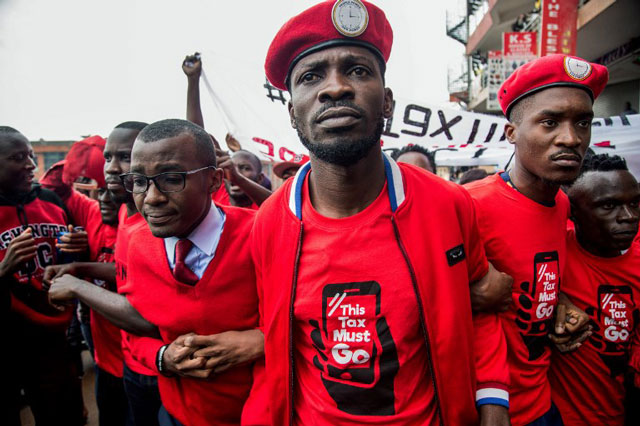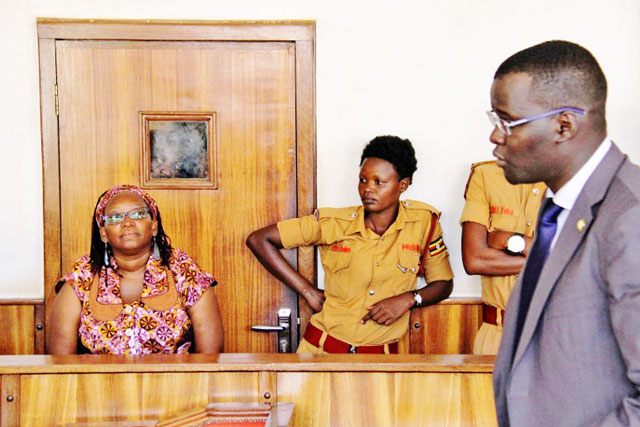
How Uganda is using old and new laws crack down on citizens, activists and politicians who criticise the president
COMMENT | RONALD KAKUNGULU-MAYAMBAL Activists who use digital media are protected by international law and protocols that guarantee freedom of expression.
Under international law, freedom of expression is also protected on the internet and mobile devices. It stands to reason then that the same rights enjoyed offline should be enjoyed online.
There are also protections in Africa. For example, the African Charter on Human and Peoples Rights provides that every individual has the right to receive information and to express and disseminate opinions within the law.
The African Commission has also acknowledged the importance of freedom of expression in the digital space. African nations are required by regional law to guarantee the right to freedom of information and expression on the internet.
But these rights aren’t always protected. Take the case of Uganda. Its Constitution protects freedom of expression and the courts have expanded this to include free speech expressed via new forms of technology.
Yet freedom of speech and expression is not a reality in Uganda. The government continues to use domestic laws on electronic communication to crack down on citizens, activists and politicians who criticise the president on the internet.
This is unfortunate. Digital activism in the political sphere is critical. It enables government critics and political activists to hold the government to account. This is clear from the way in which digital platforms like Facebook have been used by opposition politicians. For instance, Robert ‘Bobi Wine’ Kyagulanyi often shares his message on social media when he is barred from traditional media platforms.
This explains why the Ugandan government is reinterpreting old criminal libel laws and enacting new ones to restrict digital activism.

Why Uganda is wrong
Activists in Uganda who use social media find themselves vulnerable to action by the state on a number of fronts.
The first is the country’s defamation laws. While courts in Kenya, Zimbabwe and elsewhere on the continent have held that criminal defamation laws are unconstitutional, in Uganda the state continues to take a hard stance. In 2013 for instance, security minister Muruli Musaka announced the creation of a social media monitoring centre. The aim, he said, was to weed out those who use it to damage the government and people’s reputations.
Then there is the Computer Misuse Act, under which charges such as cyber harassment and offensive communication can be brought. This has happened frequently against online activists.
For example, in 2016 Swaibu Nsamba Gwogyolonga, a political activist, was arrested and charged with offensive communication. The charge was brought because of a picture he’d posted on Facebook of President Yoweri Museveni lying dead in a coffin.
And in 2017, David Mugema and Jonah Muwanguzi were arrested and charged with offensive communication for posting a song on their social media platforms calling for the resignation of President Museveni.
The most notorious use of these provisions was the recent conviction of Stella Nyanzi. The Makerere University lecturer and human rights activist has a considerable social media following.
She was charged with the offence of cyber harassment after writing a caustic Facebook post in which she called the president “a pair of buttocks” and the first lady “empty-brained”. She subsequently wrote a poem lamenting the fact that the president’s deceased mother had not aborted him.
By using laws such as the Computer Misuse Act, the Ugandan state has criminalised criticism of the president. This runs contrary to the country’s Constitution.
Other laws like the Anti-Terrorism Act are also used to limit freedom of expression. The Act allows the security apparatus to intercept private communication without a warrant while investigating terror activities.
The fear is that the state will brand activists who use social media platforms as terrorists so that it can put them under surveillance.
For instance, in August 2019, the Wall Street Journal reported that Ugandan security officials had worked with Huawei technicians to hack into opposition politician Kyagulanyi’s phone. He had previously been accused of treason and attempted terrorism. This shows how the Ugandan state can create the impression that vocal dissenters are in fact terrorists.
More than that, the Regulation of Interception of Communication Act allows bona fide interception of communication in connection with the provision, installation, maintenance or repair of a telecommunication service. Ugandan internet service providers are required to ensure that their telecommunication systems are technically capable of supporting lawful interception without it being detectable by users. This is an outright breach of privacy.
The Uganda Communications Act is also problematic. In the run-up to the presidential election in 2006, for example, the government used the provisions of the act – which are to monitor, inspect, licence, supervise, control and regulate communications services – to block access to Radio Katwe because the online station was critical of the president.
Shut downs
The other way in which activists are barred from using social media platforms, and the internet, is through shut downs.
Museveni has on several occasions shut down the Internet and blocked access to social media platforms like Facebook, Twitter and WhatsApp.
The Ugandan government has also introduced a social media tax. The idea was initiated by Museveni, who argued that Ugandans were using social media platforms to gossip. The tax was meant to raise resources to cope with the consequences.
In today’s Internet era the right to freedom of expression, with all its attendant benefits to democracy, is best exercised online. Any limitation or infringement of this right should be viewed circumspectly. These efforts by the Ugandan government to limit online freedom of expression should be resisted as much as possible.
****
Ronald Kakungulu-Mayambala is Associate Professor of Human Rights, Law and Peace, Makerere University
Additional research was done by Solomon Rukundo. He holds an LLB (Hons) from the University of Dar es Salaam, and a Diploma in Legal Practice from Uganda’s Law Development Centre
Source:theconversation
 The Independent Uganda: You get the Truth we Pay the Price
The Independent Uganda: You get the Truth we Pay the Price



